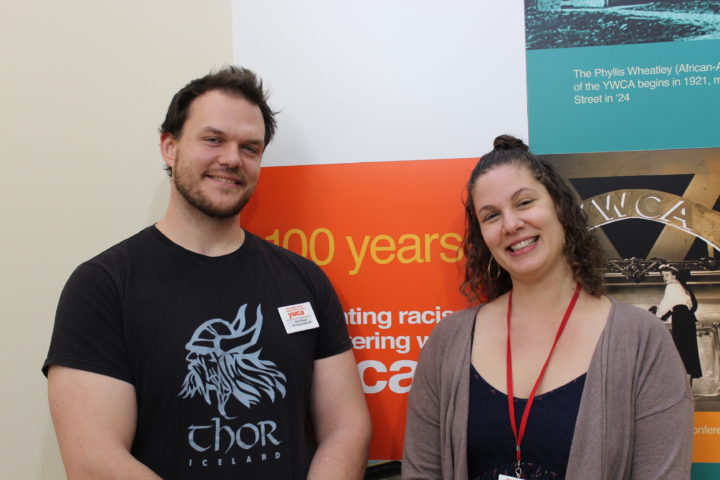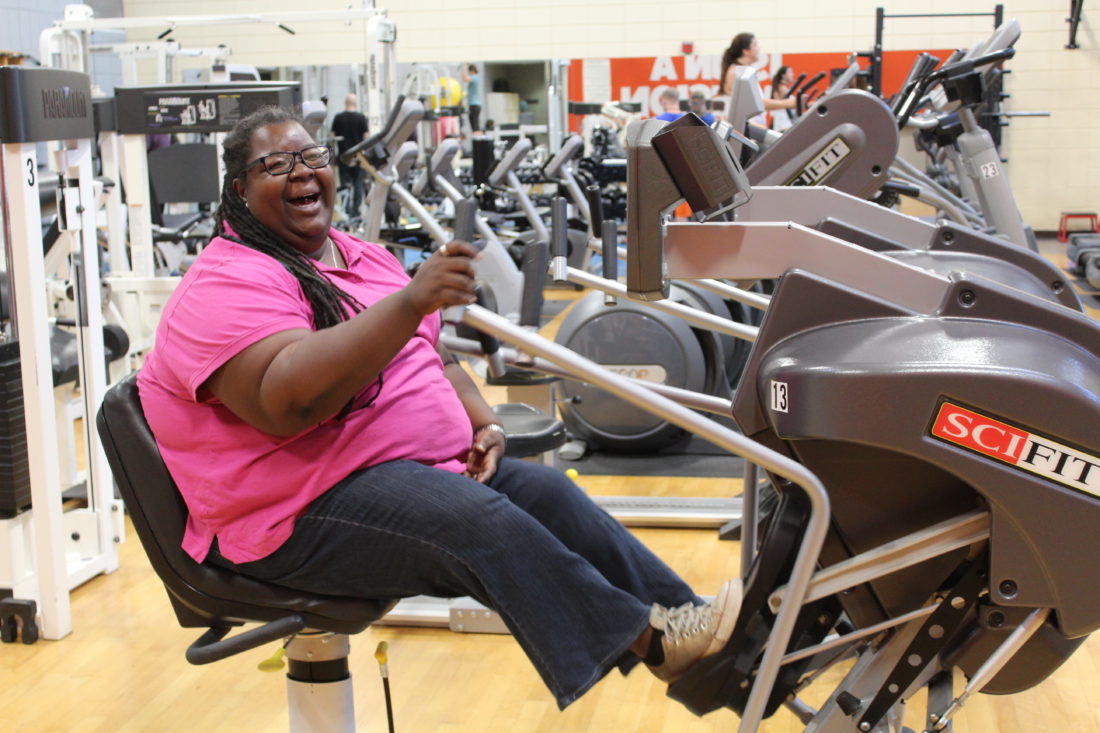On Jan. 16, more than 40 participants embarked on a 30-week-long diabetes wellness and prevention program that promotes nutrition education and fitness to cope with and prevent Type 2 diabetes.
Since its inception in 2012, the Asheville YWCA’s diabetes program has served at least 500 people. While many participants have been diagnosed by a doctor as either diabetic or pre-diabetic, the program is open to anyone who desires to make healthy lifestyle changes.
During weekly classes, participants will learn about aspects of nutrition and wellness, including stress management, meal planning, how to read food labels and more. The classes are based on programming developed by Stanford University and the U.S. Centers for Disease Control and Prevention. Early on in the series, classes last 2 1/2 hours each week, but later sessions last an hour.
Leah Berger-Singer, the YWCA’s preventive health coordinator, leads the classes. She encourages participants to consider how making seemingly small decisions — such as choosing to drink water instead of soda — contribute to an overall healthy lifestyle.
“It’s so mind-blowing to see how making these little choices in our daily life can literally save our life,” Berger-Singer says. “It doesn’t have to be that hard. I just want to make being healthy easier for people.”
Making time for fitness
Participant Tina Morrow says she has joined the diabetes program for a second time after losing nearly 100 pounds while following the program’s nutrition and exercise guidelines. She hopes that this year’s session will help her continue to build on the skills and habits that she has gained from her participation last year.
“Most health problems that I’ve had have stemmed around my weight, whether it was back problems or knee problems or whatever the case may be. I just really started taking notice that weight was going to impact my life in the long run,” Morrow, 41, says. “It never really had bothered me before, but I started noticing it making changes in my body and I said, ‘OK, it’s time to do something about this.’”
The program memberships also include access to the facility’s gym and pool, weekly exercise classes and one-on-one fitness training with Nick Stuer, YWCA’s diabetes fitness coach and personal trainer. One of his objectives is to slowly build participants’ weekly exercise from 45 minutes per week to 150 minutes, or 2 ½ hours, by the end of the program.
“We don’t expect anyone to come in day one and start working out 2 ½ hours, but the goal is that eventually they will with the help of Nick,” Berger-Singer says.
Body of knowledge
Stuer says the program offers him an opportunity to work with a range of people with different goals, body types and fitness levels.
“There’s kind of this myth that if you have diabetes, you’re extremely overweight. And that’s not actually true at all. There can be a whole range of bodies that can have diabetes Type 2,” Stuer explains. “I think that’s actually kind of my favorite part about it. It’s really fun to go back and forth between these wildly different body capabilities.”
Stuer says he also plans to teach participants to incorporate exercise into daily life in ways he hopes will extend beyond the length of the program.
“It’s not about the results. I think we get too attached to that, particularly the number on the scale,” Stuer explains. “It’s about changing the whole rest of life, not just the next 7 ½ months. It’s about getting habits that last.”
More than a number

While participants do monitor weight loss, the program also will provide periodic blood work to determine the not-so-obvious results of diet and exercise, including glucose and cholesterol levels.
“Some people get really discouraged if they don’t lose any weight,” Berger-Singer says. “Your number on your scale might not change. It might even go up. But when you go to the doctor and your numbers are good and you even get off medication, that’s awesome and that’s what’s important.”
According to Berger-Singer, having a support network is crucial for making healthy lifestyle changes. She and other YWCA staff work to connect with participants beyond simply providing wellness instruction and knowledge.
“We’re here for emotional support. People come here and talk with us about what’s going on in their lives,” Berger-Singer says. “I think sometimes just the fact that we’re here and we’re listening to them and what’s going on in their life is more than enough.”
For Morrow, it is the continued support from staff, as well as a sense of community from other participants, that keeps her focused on her fitness goals.
“They have supported me in every step of the way and have been there to talk to. You never feel like you’re judged when you walk in the door. You’re just another welcomed face,” Morrow says. “I’ve gotten a wealth of support and education and encouragement from them.”
As instructors and participants gear up for the next few months, Berger-Singer says she hopes that those signed up for the program will experience positive changes in many parts of their lives
“My big thing that I have found with this program is, maybe they don’t lose any weight, maybe they gain weight — whatever, they now feel like they have a community of people who support them and they feel like people care about them,” Berger-Singer says. “If I can plant some kind of seed or make someone feel happy or loved or cared about, that’s going to make them live longer and healthier.”




Before you comment
The comments section is here to provide a platform for civil dialogue on the issues we face together as a local community. Xpress is committed to offering this platform for all voices, but when the tone of the discussion gets nasty or strays off topic, we believe many people choose not to participate. Xpress editors are determined to moderate comments to ensure a constructive interchange is maintained. All comments judged not to be in keeping with the spirit of civil discourse will be removed and repeat violators will be banned. See here for our terms of service. Thank you for being part of this effort to promote respectful discussion.